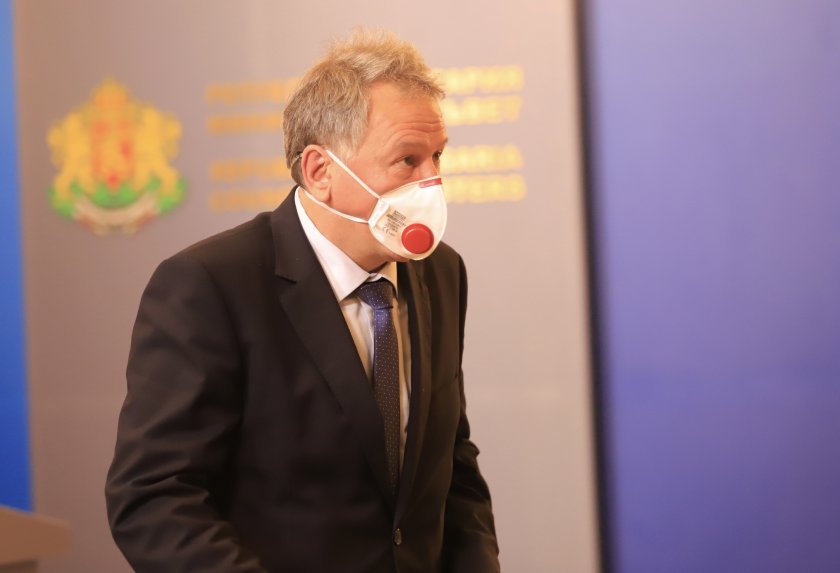
A person from Pleven (Northern Bulgarian) tested positive for the Indian variant of COVID-19, the Centre for Infectious and Parasitic Diseases announced on June 17.
He is between 20 and 30 years old, has not travelled abroad and is with temporary residence in Bulgaria. In early April, he came in contact with an infected man from Northern Ireland who had left Bulgaria, the health ministry said.
The sample was sent for analysis on April 21, it was examined for the first time on May 5, but only in June it was proved conclusively that it was the Indian variant of the virus.
The caretaker Minister of Health requested information from scientists at the Centre for Infectious and Parasitic Diseases why so much time had passed between taking the sample and announcing the results. An in-depth epidemiological study of the infected person's contacts is currently underway.
"There is no reason to panic, but this is a warning, perhaps it is an exaggeration to say one last warning, but a strong warning that if we underestimate the virus and are hesitant to get vaccinated, a wave of infection could occur earlier, and not in the autumn as some experts warn. I am not surprised that a new strain has appeared, in many European countries it exists. There may be other cases. My deputy Dr. Zlatanov has organized a very in-depth study of the contacts, in order to, if possible, to isolate all contacts. But this is not a guarantee that others will not appear. No need to panic, let it be a warning to get vaccinated because this strain has caused an increase in the number of infected in Portugal, Russia and other countries and can cause the same in our country and then this will force us to tighten the anti-epidemic measures, which are now among the most liberal," the caretaker Minister of Health, Dr. Stoycho Katsarov, said.
On April 1, the young man came in contact with a COVID-19-infected person from Northern Ireland who had left Bulgaria. At the onset of the first symptoms, the man self-isolated and there is no information of contact with other persons. On April 5, the person was tested for COVID-19, and the sample was taken at the University Hospital "Dr. Georgi Stranski", Pleven, the National Centre for Infectious and Parasitic Diseases (NCIPD) announced.
As soon as a positive result for a coronavirus infection came out, the man was placed under home isolation, with mild symptoms. The disease passed without complications. According to data from the epidemiological study, the person received the first dose of the Astra Zeneca vaccine on February 24, 2021.
First case of Indian variant of coronavirus detected in Bulgaria
On April 21, the hospital "Dr. Georgi Stranski" sent 20 randomly selected samples for sequencing to NCIPD. Among the samples is that of the man. It was sequenced on May 5, and the data were immediately deposited with the international gene bank GISAID. Until 16 June, it was not established that this sample was a B.1.617.2 (Delta) variant. Re-analysis revealed that it was a Delta variant, or the so-called Indian variant of the coronavirus.

The Ministry of Health instructs NCIPD to establish such a procedure for collection and analysis of samples, which as soon as possible to identify new variants of coronavirus infection in order to prevent and protect human health and take timely measures in this direction.
Earlier on June 17, Caretaker Minister of Health, Dr. Stoycho Katsarov, ordered the management of the National Centre for Infectious and Parasitic Diseases to personally report to him on all available information in connection with the first case reported in the country of a patient with "Delta" variant of COVID-19, known as the Indian variant.
Minister Katsarov demands clarification of all facts and circumstances - when the sample was taken, what epidemiological study was done, why it took so long to study the sample - from April 21 to June 17, when was it admitted to the National Centre for Infectious and Parasitic Diseases, when was the sample sent abroad, etc.
According to the caretaker Minister of Health, due to the high risk to public health, it is unacceptable for the results to be made public so long after the sample has been taken.
